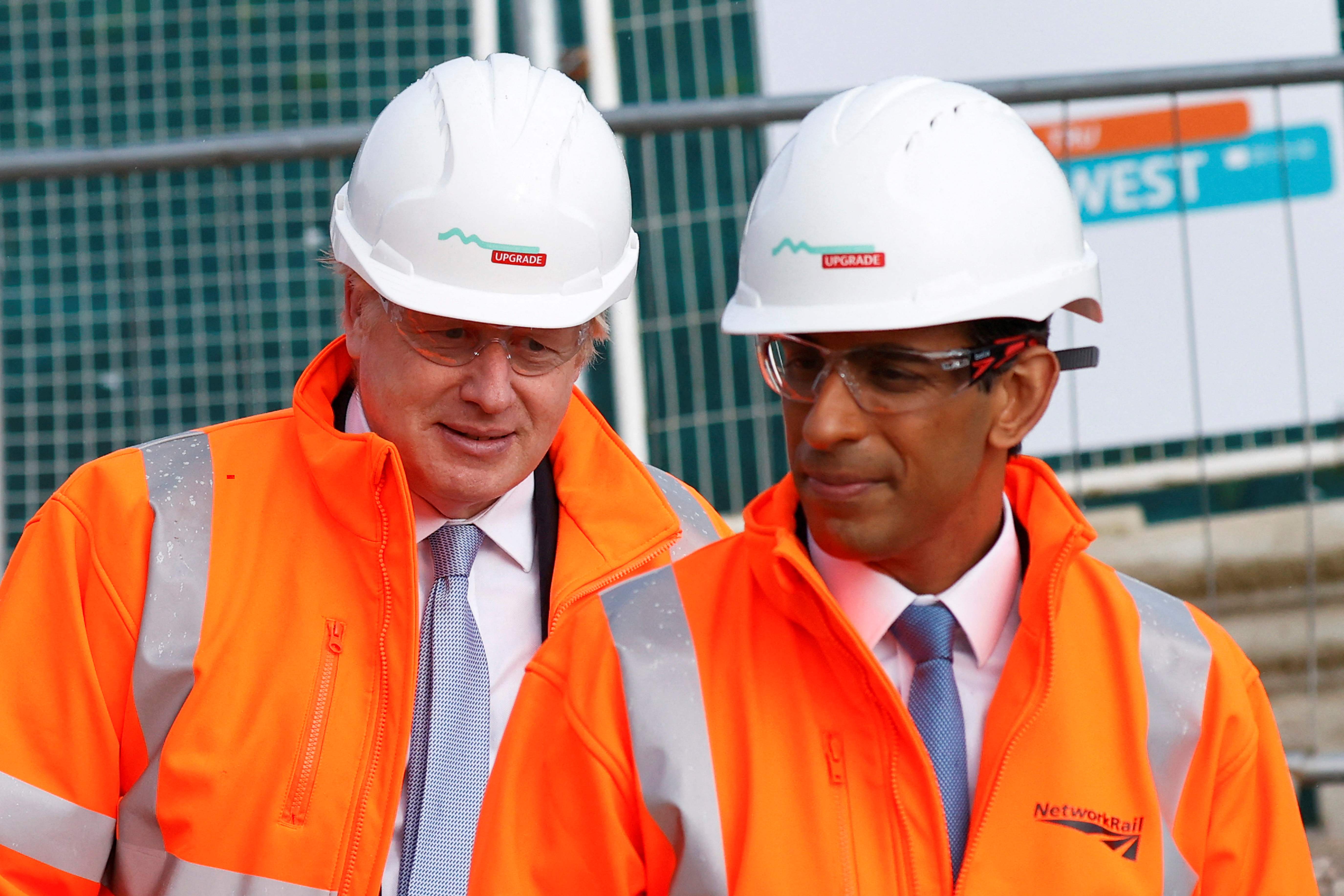Chancellor shakes fist at ‘excessive’ borrowing in thin speech pointing to grim Budget
Short, not very sweet, and without much to say about the government’s grotesque policy failures, Rishi Sunak’s Tory conference speech had thin gruel for businesses, public sector workers and Britain’s poorest families, writes James Moore

“The most exciting place on Planet Earth,” Rishi Sunak said of his ambitions for Britain.
Today’s Tories tend not to be much interested in events beyond their own navels. The chancellor, who made great play of having worked in tech-happy California, is a little more open in his outlook.
He’ll presumably, then, be aware that Britain is already generating quite a lot of excitement throughout the rest of Planet Earth. It’s just the wrong sort of excitement; the sort you usually get before your favourite comedy show comes on.
A laughing stock is what his government’s policies have made of Britain beyond its borders.
He talked about how proud he was about voting for Brexit, which is the cause.
It has played a key role in the half-filled (and sometimes empty) supermarket shelves, the growing concerns about what might happen at Christmas, and the fuel crisis which continues to dog Britain today. No wonder he almost sounded almost defensive in so doing.
He gushed about venture capitalists investing in the country. Trouble is, they’re not going to be doing that for much longer if the government can’t do something to sort out the godawful mess with the supply chain that it has created.
Investors don’t get excited by that sort of thing. They get scared. They tend to run. They’re not alone.
That he and his colleagues have nothing good to say on the subject is perhaps why he largely avoided it. It at least prevented him from getting into trouble through looking callous, or stupid, or both like some of his colleagues.
Tory responses have ranged from “it’s the fault of business” (which it isn’t) to Liz Truss’s recent “I don’t believe that the prime minister is responsible for what’s in the shops”. Voters may have other ideas on that subject.
True, paying workers more in key occupations, and improving their conditions, might help to alleviate some of the pressure. But it won’t fix the problem. Sunak is smart enough to realise that. The trouble is, he’s surrounded by a lot of people who aren’t. And his party’s empty heads are making all the noise.
The sad thing is, the chancellor, with his attempt to play to the crowd by defending an increasingly indefensible Brexit, proved he was perfectly willing to join them.
Perhaps he felt he had to to cover how little he otherwise had to say.
He talked for a bit about jobs, and work, and how important he felt it was to get people back into it rather than increasing their benefits, without spelling out that he was referring to his cruel £20 cut to universal credit. (PS. He’s the richest MP in the House of Commons. I don’t imagine he enjoys seeing the two being linked.)
He confirmed the pre-announced extension of some of his job support schemes, like the much-ballyhooed Kickstarter scheme for young workers. This was, I suppose, welcome even if the value of some of those schemes is, well, questionable.
Sunak’s plan to emulate Cali was to announce some AI apprenticeships for underprivileged youngsters, which is fine, if a little gimmicky, but is hardly going to create a foggy silicon valley on these shores.
A business audience could have been forgiven for indulging in bitter laughter when he talked about the importance of “pragmatism” and not being wedded to “ideology”, even more so when claimed that the Tory party remains the “party of business”.
The government’s lack of pragmatism, its flat refusal to even countenance listening to businesses on the subject of the collapsing supply chain, and the need to be open to a little more immigration, help to explain why.
At the conclusion of his short, and not very sweet, missive, the chancellor’s star power seemed dimmed.
Perhaps his most significant words were those on the subject of taxing, and borrowing. He’s being dong a lot of both and he wanted us to know that he doesn’t much like it.
He described “excessive” borrowing, as “immoral,” and he talked about the traditional Tory dislike of tax rises, like the ones on working people (national insurance) that he voted for.
“We need to fix our public finances,” he said, echoing, George Osborne. This very Tory territory points the way to some more very Tory austerity.
“If the chancellor wants to get wages rising he shouldn’t be freezing the pay of millions of key workers,” the TUC archly noted on the subject of wages, which it would very much like to see increasing.
Quite. But the government doesn’t seem minded to practice what it’s preaching to business when it comes to its own workers. There’ll be none of the “investment” it’s urging for them.
The chancellor will have to have more of substance to say during his next Budget speech. This suggests that it will also be the wrong kind of exciting.






Join our commenting forum
Join thought-provoking conversations, follow other Independent readers and see their replies
Comments